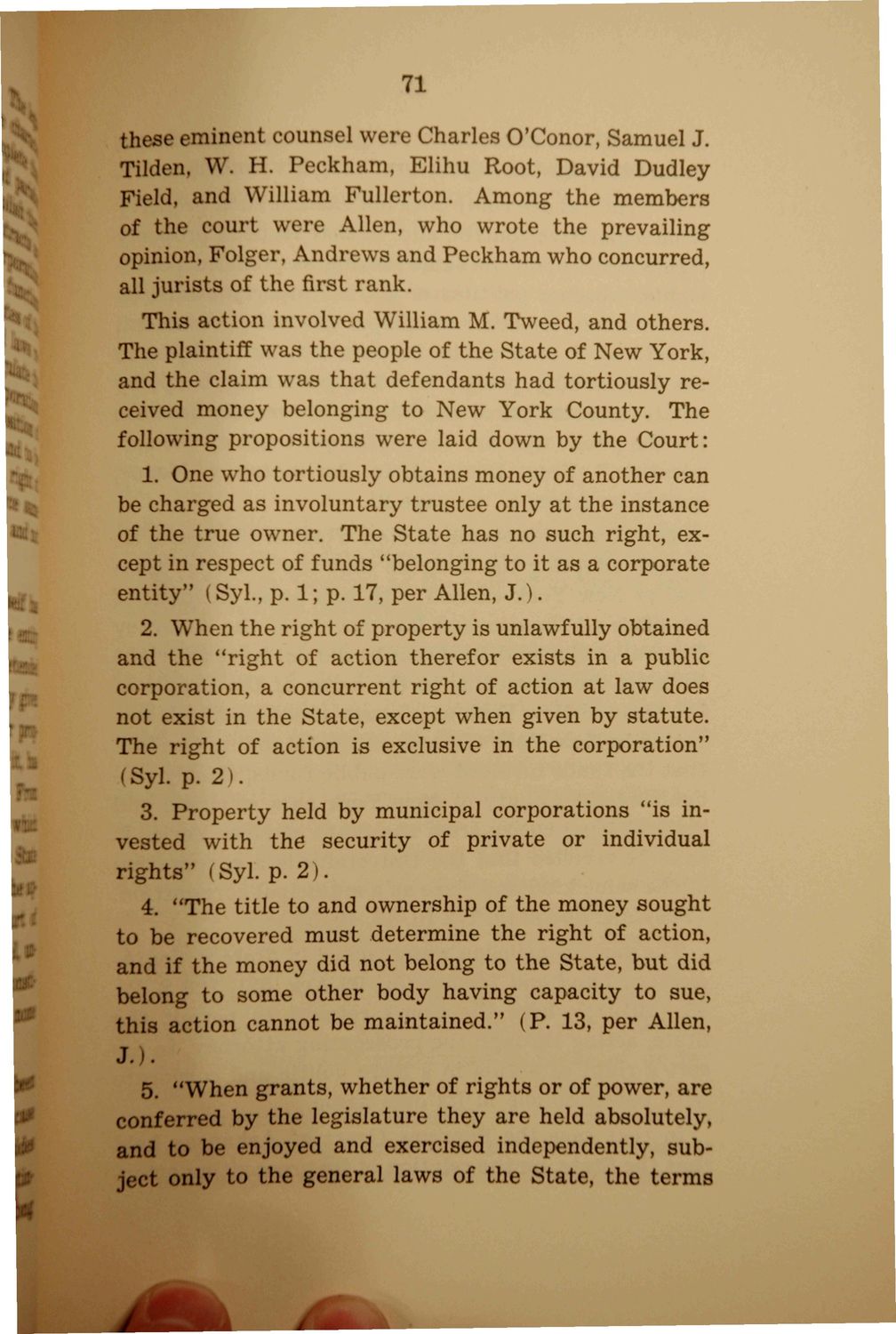| |
| |
Caption: Booklet - UI Charter of Freedom (1942)
This is a reduced-resolution page image for fast online browsing.

EXTRACTED TEXT FROM PAGE:
71 £ p :S ^ :r Sj^ ^ ^•' these eminent counsel were Charles O'Conor, Samuel J. Tilden, W. H, Peckham, Elihu Hoot, David Dudley Field, and William Fullerton. Among the members of the court were Allen, who wrote the prevailing opinion, Folger, Andrews and Peckham who concurred, all jurists of the first rank. This action involved William M. Tweed, and others. The plaintiff was the people of the State of New York, and the claim was that defendants had tortiously received money belonging to New York County. The following propositions were laid down by the Court: 1. One who tortiously obtains money of another can be charged as involuntary trustee only at the instance of the true owner. The State has no such right, except in respect of funds "belonging to it as a corporate entity" (Syl., p. 1; p. 17, per Allen, J . ) . 2. When the right of property is unlawfully obtained anc * the "right of action therefor exists in a public corporation, a concurrent right of action at law does not exist in the State, except when given by statute. The right of action is exclusive in the corporation" (Syl. p. 2 i. 3. Property held by municipal corporations "is invested with the security of private or individual rights" i Syl. p. 2 ) . 4. "The title to and ownership of the money sought to be recovered must determine the right of action, and if the money did not belong to the State, but did belong to some other body having capacity to sue, this action cannot be maintained." (P. 13, per Allen, J 5. "When grants, whether of rights or of power, are conferred by the legislature they are held absolutely, and to be enjoyed and exercised independently, subject only to the general laws of the State, the terms ** \'*m i 1 1 ¥ $
| |